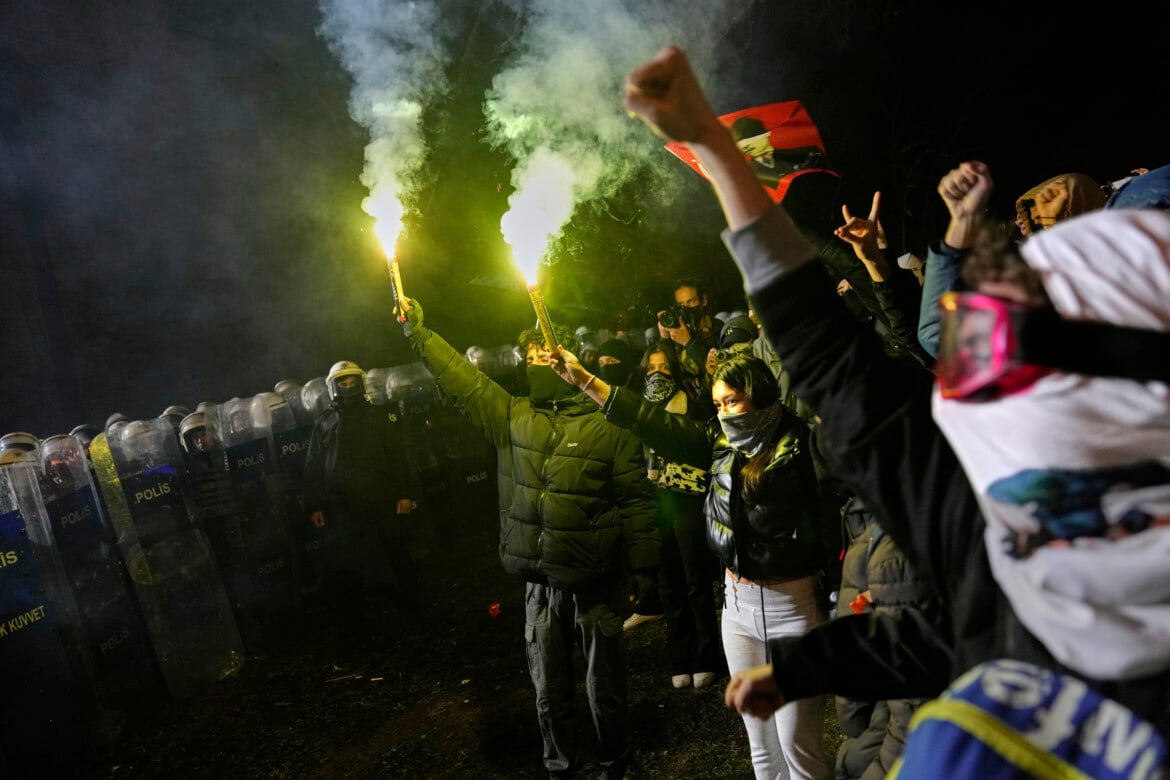Analysis
At the heart of Erdogan’s authoritarian project
The paradox is that the opening of this deep internal rift, to which economic developments which are disastrous for the population are also contributing, comes at a time when it seemed that Erdoganism was doing rather well.

The enormous mobilization in Turkey appears to show that Erdogan went a step too far when he decided to jail his main rival, after having his university degree removed to declare him ineligible to run. It is, however, possible that he calculated that a mass reaction would follow and bet that he could contain it, in order to emerge from the crisis with a decisive acceleration of the dismantling of the country's remaining ties to democracy.
With authoritarian impulses reaping plaudits in the White House and NATO showing the opposite of unity, this would be the temptation for him to go further with the crackdown: to call early elections, now that he has eliminated any chance of them being competitive, and entrench himself in power to take Turkey into full despotism, alongside Belarus.
However things turn out, it is a fact that the current clash is taking the country out of the groove of slow-burn authoritarianism into which Erdogan's Turkey has been relegated by the Western mainstream, notoriously indifferent to the mass incarceration of journalists, minorities and leftist activists.
Those arrested in the past week number in the hundreds. But we are no longer seeing the repression of the so-called margins, the teachers signing peace petitions, the Gezi Park students mobilizing against the devastation wrought by regime-friendly developers, or the Kurdish activists, officials and parliamentarians, whose electoral clout prevented Erdogan from rewriting the country’s constitution. Nor are these the harsh purges against Gulenist former associates unleashed in the aftermath of the attempted coup. For the Islamo-nationalist power bloc, we have arrived at the heart of the state's problem: the head-on clash with today's forms of republican Kemalism.
This is the CHP, which, by redrawing its alliances, has won the government of the big cities, contended for the presidency two years ago, and is preparing for nominations for the next electoral battle. It is significant that at the start of the first major protest following Imamoglu's arrest, CHP leader Ozgur Orel chose to praise pro-Kurdish HDP leader Selahattin Demirtas, who is serving a heavy sentence, and call for his immediate release.
In recent days, the social platform of the self-proclaimed champion of free speech, Elon Musk, has suspended the accounts of opposition politicians. Kurdish activists are denouncing restrictions on thousands of X accounts on a global scale. From the protest, opposition leaders have called for a boycott of the national media, which, following a familiar script, is ignoring the enormous protests, airing reports about treats for the end of Ramadan or about “Israel fearing Turkey.”
The paradox is that the opening of this deep internal rift, to which economic developments which are disastrous for the population are also contributing, comes at a time when it seemed that Erdoganism was doing rather well: the removal of Assad from Syria, with the advancement of Ankara-sponsored militias, the disarmament of the PKK after Ocalan's appeal from prison, the high profile Erdogan had in the Muslim community thanks to his purely rhetorical tirades against Israel, and finally the credit he got for playing a role in attempts to mediate between Ukraine and Russia. Clearly, the contradictions have now run deeper, to the heart of the authoritarian project. We continue to look at Turkey through an Orientalist perspective, interposing a distance between us and them that doesn’t actually exist. It is certainly the case that Erdogan is moving along the tracks of a reinvented neo-Ottomanist sultanism, and one can easily imagine him roaming the 1,100 rooms of the presidential palace he built for himself, in a constant rage because he is unable to conquer and control Istanbul. But the Turkish political story is inextricably intertwined with our own, from the dynamics of the Mediterranean pipelines and Libya to those of pluralism and democratic spaces in Europe. Not to mention the many lessons we have learned from the mobilization of democratic confederalism, under attack by jihadists, Islamists and nationalists.
Perhaps the mobilizations that are now growing and persisting, from Belgrade to Tbilisi, from Budapest to Istanbul, deserve deeper consideration and analysis on our part than the superficial level of self-serving attempts to ignore their diversity, lumping all of them together in a speculative “spring of freedoms.” While the world witnesses the return of military conquest and rearmament plans, while neo-imperial appeasement is being pursued in a post-hegemonic theater in which the “hegemons” are showing themselves incapable of any leadership, the initiative of those who are demanding democracy, rights and social justice still exists and persists, across borders.
Originally published at https://ilmanifesto.it/al-cuore-del-progetto-autoritario on 2025-03-30
